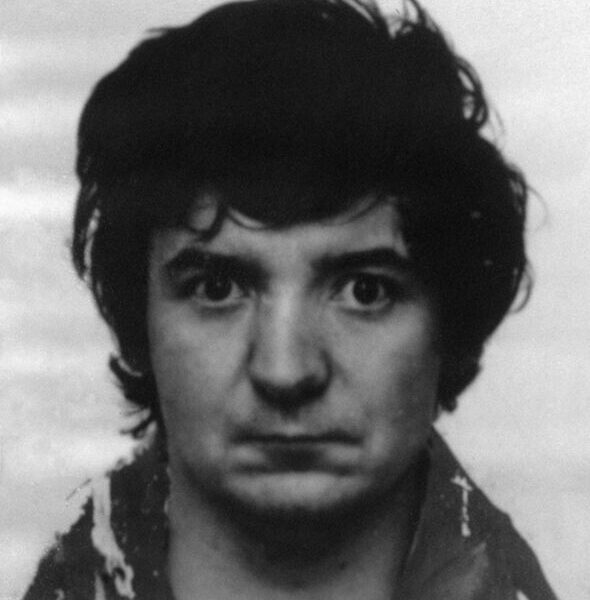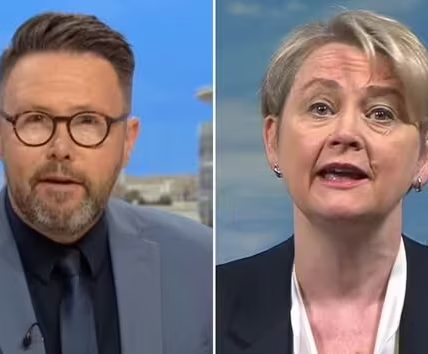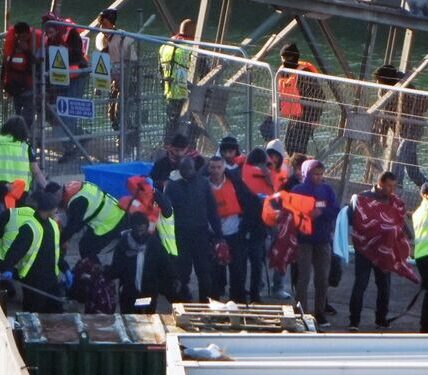
A man who has spent 38 years in prison for the murder of a woman in 1986 has had his conviction quashed at the Court of Appeal. Peter Sullivan, who was 30 when he was sentenced and is now 68, is believed to be the UK’s longest-serving victim of a miscarriage of justice. Today, the 68-year-old wept as three senior judges quashed his conviction for the killing, 17 years after his first attempt to have it overturned.
Diane Sindall, a 21-year-old barmaid, was found dead in an alleyway after she was beaten and raped in Bebington, Merseyside, in August 1986. Mr Sullivan, described by police at the time as “a quiet loner”, was arrested the following month and convicted in November 1987. He has always maintained his innocence, and new tests ordered by the Criminal Cases Review Commission reveal that DNA samples taken from the scene did not match Mr Sullivan.

Mr Sullivan first tried to challenge his conviction in 2008, but the Criminal Cases Review Commission (CCRC) declined to refer the case to the Court of Appeal before he lost his own appeal bid in 2019.

Diane Sindall was engaged at the time she was murdered (Image: PA)
Quashing the conviction, Lord Justice Holroyde, sitting with Mr Justice Goss and Mr Justice Bryan, said they had “no doubt that it is both necessary and expedient in the interests of justice” to accept the new DNA evidence.
He said: “In the light of that evidence, it is impossible to regard the appellant’s conviction as safe.”
Mr Sullivan, who attended the hearing via video link from HMP Wakefield, listened to the ruling with his head down and arms folded, and appeared to weep and put his hand to his mouth as his conviction was quashed.
A relative in court wept as the judgment was read out, with one woman emotionally declaring: “we’ve done it”.
In a statement read by his lawyer, Mr Sullivan described wrongfully spending 38 years in prison as “very wrong” but said he was “not angry, I’m not bitter”.
He said: “I lost my liberty four decades ago over a crime I did not commit.
“We now know how very different the times we live in are from scientific advances, legal practice and methods of investigation and questioning by the police.
“What happened to me was very wrong but it does not detract or minimise that all of this happened off the back of a heinous and most terrible loss of life.
“I did not commit murder or unlawfully take the life of any person throughout the span of my own.
“As god is my witness, it is said the truth shall take you free.
“It is unfortunate that it does not give a timescale as we advance towards resolving the wrongs done to me, I am not angry, I am not bitter.
“I am simply anxious to return to my loved ones and family as I’ve got to make the most of what is left of the existence I am granted in this world.”
Miss Sindall, who had recently become engaged, had just finished her shift as a part-time barmaid at a pub in Bebington when her small blue van ran out of petrol.
As she walked towards an all-night garage, she was attacked.
Don’t miss… ‘I was abused as a child – it made me stronger but paedophiles should be caged’

Kim Smith, sister of Peter Sullivan speaking to the media outside the Royal Courts of Justice, (Image: PA)
He again asked the CCRC to refer his case in 2021.
Sullivan was nicknamed “wolfman” because of bite marks found on the victim’s body.
At a hearing on Tuesday, lawyers for Mr Sullivan told the Court of Appeal in London that the new evidence showed that Ms Sindall’s killer “was not the defendant”.
Barristers for the Crown Prosecution Service (CPS) told the court that there was “no credible basis on which the appeal can be opposed” related to the DNA evidence, as it was “sufficient fundamentally to cast doubt on the safety of the conviction”.

Lawyer Sarah Myatt speaking to the media outside the Royal Courts of Justice, central London, (Image: PA)
Read more…
Common mistake made by these drivers leaves them most at risk of car theft [LATEST]
‘Sick’ dad stabs entire family to death hours before son’s graduation [LATEST]
Merseyside police confirmed that 260 men have been eliminated from their inquiry since it was reopened in 2023 and that none of Miss Sindall’s loved ones are implicated.
The court heard that an unknown man called police after the murder to say he had stolen and burned her clothes, but he later retracted the account and the information was discounted because of bite mark evidence gathered as part of the prosecution.
Detective Chief Superintendent Karen Jaundrill said: “Our thoughts remain with the family and friends of Diane Sindall who continue to mourn her loss and will have to endure the implications of this new development so many years after her murder.
“We are committed to doing everything within our power to find whom the DNA, which was left at the scene, belongs to.
“Unfortunately, there is no match for the DNA identified on the national DNA database.
“We have enlisted specialist skills and expertise from the National Crime Agency, and with their support we are proactively trying to identify the person the DNA profile belongs to, and extensive and painstaking inquiries are under way.”

Lord Justice Holroyde during the hearing for Peter Sullivan (Image: PA)
Lord Justice Holroyde also said a decision made by the CCRC in 2008 that scientific techniques at the time would not yield a DNA profile was “plainly correct”.
Giving the court’s ruling, he said: “The brutal attack which ended Miss Sindall’s young life also blighted the lives of her fiancee, her family and all those who loved her.
“We offer our condolences to the bereaved.”
James Burley, who led the investigation by the charity Appeal into the case of Andrew Malkinson, said: “Peter Sullivan’s exoneration today after nearly four decades of wrongful imprisonment provides further evidence that our current appeals system cannot be trusted to swiftly identify and rectify miscarriages of justice.
“Between them, Peter Sullivan, Andrew Malkinson and Victor Nealon spent over 70 years wrongly imprisoned before finally being exonerated by compelling DNA evidence.
“Each had their cases previously rejected by both the Court of Appeal and the CCRC (Criminal Cases Review Commission) – the institutions which are meant to act as our justice system’s safety net.
“The case for an urgent overhaul of the appeals system is now overwhelming.”



























